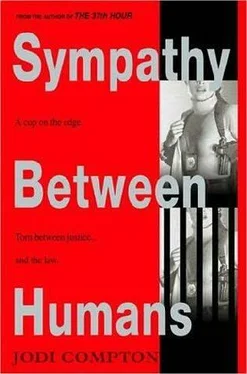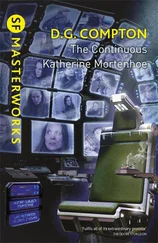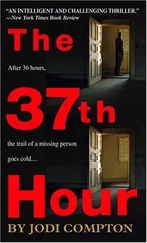True to form, she didn’t answer.
“I get the feeling that there’s something else you’d like to tell me,” I said. “Do you trust me, Marlinchen?”
“Oh, yes,” she said. “It’s just that Aidan is a painful issue.”
“Sometimes, in my line of work,” I said, “I tell people they have to make their pain worse for a while on the way to making it better, or they’ll go on dealing with the same low-grade pain indefinitely.”
Marlinchen looked straight ahead, staring out into the blackness beyond the kitchen windows. She wasn’t ready to make the pain worse. I’d tried.
“Finish your wine,” I said, “and let’s go to bed.”
***
I very nearlyshut myself into Hugh Hennessy’s bedroom before I remembered the loose knob. Leaving the door cracked, I felt a little frisson of anxiety. It was so dark and quiet out here, I felt like I had stepped into a Gothic novel, complete with trick doors that trapped you behind them. In bed, I missed the small city noises that would have helped me sleep.
Because I’d left the door open, nothing alerted me that someone else was in the bedroom until I heard movement. I rolled over quickly, judged from the shape of the shadow that it was Marlinchen, and relaxed. She was barefoot, dressed only in a camisole and boxer shorts.
“What is it?” I said.
“I want to talk about Aidan,” she said.
Finally.
Marlinchen came closer, to sit on the floor by the bed.
“I didn’t say anything against Aidan being sent away. I thought it was for the best.” She drew in a shuddery breath. “I was afraid of what would happen if Aidan stayed.”
“Why were you afraid?” I asked.
“He was beating Aidan,” she said. “Toward the end. But it started a long time before that.”
“Tell me,” I said.
Marlinchen Hennessy was her father’s little girl;she was bright and verbal, and her father loved to read to her and teach her new words and listen to what she was learning in school. No sound had been sweeter to her own ears than the nickname of “Marli” that only Daddy used, and it hadn’t been until she was perhaps 10 that she’d realized that Daddy wasn’t six feet tall, but only five-foot-eight.
Aidan, quiet as his twin sister was talkative, gravitated to their pensive, withdrawn mother. Like an astronomer, he studied her silences and her moods. When she seemed saddest, she’d draw him up into her lap and hold him, stroke his golden hair, kiss his maimed hand. Sometimes they’d sit together under the magnolia tree and look out at the waters of the lake. When he thought it would make her feel better, he’d bring the baby down to her, first Colm, whose weight had bowed Aidan’s small back, then later baby Donal. That was close, of course, to the end.
All the children had been stricken by their mother’s sudden death, but none more than Aidan. After the funeral, he’d lain under the magnolia tree and wept without restraint. Daddy had finally looked out the window and seen Aidan there, and his lips had narrowed to a thin line, and he’d opened the door and gone down the back steps and stood at Aidan’s side. Marli, watching from her bedroom window, hadn’t been able to hear his words, but Aidan wasn’t responding. Then Daddy had bent down and pulled Aidan to his feet, and when he saw Aidan was still crying, slapped his face.
Marli forgot her shock in a day or two. She was young.
She was busy, too. There was so much to learn. Daddy gave her a footstool so she could reach the table where she changed Donal’s diapers. She dressed the baby in the morning and put him down for his naps and to bed in the evening. In the weeks after Mother’s death, there were babysitters, but soon they faded away. “It’s our home,” Daddy said. “We’ll take care of it, like we’ll take care of each other.”
Marlinchen liked that idea. She thought of it as she poured cereal into bowls for her brothers and made their school lunches and washed up the dishes. She was not yet eight years old.
Marlinchen worried about her father constantly. She’d heard him talking to someone on the phone about having an ulcer. That was new, in addition to the back pain that came and went, and Marlinchen knew that stress aggravated it. With Mother gone, Daddy had to do the shopping for six now, and drive them to school and buy them their clothes and school supplies.
Daddy used to kiss the top of her head and say, “What would I do without you?” He sampled the dinners she started cooking at eight years old, her first recipes, and proclaimed every one of them “superb,” even the ones she knew she’d messed up. He came to stand in the doorway sometimes when she was reading bedtime stories to Colm and Donal. She’d always pretend she didn’t see him, keeping her pride in his approval to herself.
There were other compensations: a little extra spending money. A white kitten on her birthday. Marlinchen was the first girl in her class to have pierced ears, with permission from Daddy, who said she was mature enough for them at nine.
Lost in the unconscious narcissism of childhood, she didn’t realize for a long time that Daddy never really made eye contact with Aidan much, or spoke directly to him. If Marli was around, that’s who he talked to. When Marlinchen did begin to notice this, she thought it was because Aidan was so quiet all the time, and self-sufficient. Not like Colm and Liam, who got scraped knees and had arguments that needed to be refereed, or Donal, who needed everything. Aidan never required much of anything.
Then, one midwinter day, he got sick.
It wasn’t serious. Shouldn’t have been, at least. It was a flu, one of those things that runs around schools in wintertime. Aidan caught it, but kept going to school until a teacher sent him home.
When Marli got home that day, she went to his room to see how he was doing. He was very sleepy. When she touched his cheek, it was like a furnace covered by a thin layer of muscle and skin. She took his temperature with the little thermometer from the bathroom. What it showed her made her run to her father’s study.
Daddy was working on a lecture he was giving at Augsberg College. She found him deep into his writing.
“Daddy?”
“Hi, honey,” he’d said, not stopping his work.
“I think Aidan’s really sick,” she said.
“It’s the flu,” Daddy said. “Bed rest is the only thing you can do for it.”
“I think he needs a doctor,” Marlinchen said. “His temperature is 104.”
“Really?” Daddy said. “Better give him a couple of ibuprofen, then. That’ll take the fever down.” He was still typing.
Marlinchen swallowed. “I really think he needs a doctor, Daddy.”
Daddy had stopped typing, but he hadn’t turned around. “Did you hear me? Give him the ibuprofen,” he said. His voice had become sharp. “I’m giving this lecture tomorrow. I don’t have time for this shit.”
“All right,” she said faintly.
Marlinchen had seen a movie where people saved a man with a high fever. She made Aidan wash the ibuprofen down with a big glass of ice water, and then another, and she ran him a very cold bath and made him get in it. In an hour, his temperature registered at 100, and she knew he’d be okay.
Daddy came out of his study three hours later. “I’m sorry, Marli,” he said.
Relief warmed her.
“I shouldn’t have said that four-letter word in front of you,” he said. “That’s a bad word, I know.” He pressed $20 into her hand. “How about ordering pizza tonight, so you don’t have to cook?”
Daddy’s back had been hurting of late, Marlinchen decided later. That was probably behind his short temper.
Читать дальше












